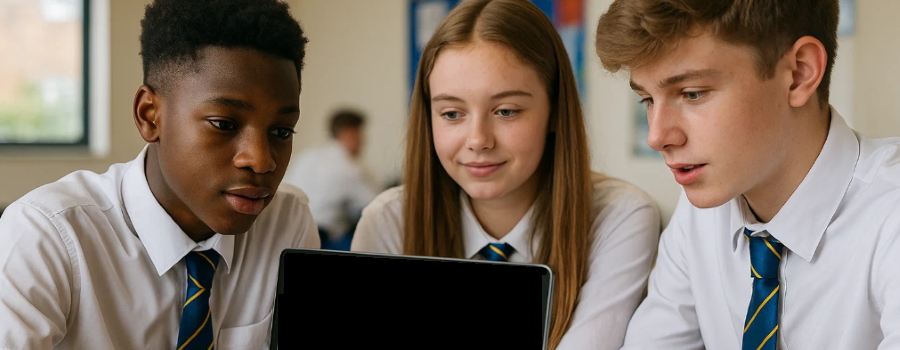How to Be Productive in Group Work

Productive group work is a fundamental aspect of your Sixth Form and University studies. Whether you're tackling a project with classmates you barely know or collaborating with a well-established team, group work is an inevitable and essential part of your academic journey. Successfully navigating group work requires clear communication, organisation, and a commitment from all members. Here are our top tips to help you thrive in group projects and ensure your success.
Assign a Team Leader
The first step in ensuring effective group work is to assign a team leader. This person will help keep the group organised, ensure deadlines are met, and act as a point of contact for everyone. The leader doesn’t need to be the most knowledgeable person, but someone who can coordinate and keep everyone on track is crucial. Make sure to discuss and agree on your common objectives from the outset, so everyone knows exactly what the project involves and what is expected of them.
Agree on Group Rules and Set Clear Objectives
At the start of the project, it’s essential to establish group rules that everyone can follow. These might include agreeing on how often you will meet, how you will communicate (email, text, or another platform), and how you will handle conflicts or disagreements. This ensures that everyone is on the same page and helps avoid misunderstandings later on. Additionally, take the time to agree on the specific objectives of the project and break it down into manageable parts so that everyone knows what the end goal is.
Plan Thoroughly
Planning is the cornerstone of successful group work. Once you’ve agreed on the task, make sure to discuss how the project will be approached. Break the task into smaller, more manageable elements, and decide who will be responsible for each part. Hold a brainstorming session where each team member can share ideas, contribute insights, and determine the best course of action. Don’t be afraid to speak up if you feel the task you’ve been assigned doesn’t align with your strengths. Group work is most effective when everyone is honest about their abilities and takes on roles that match their skills.
Set Clear Responsibilities and Deadlines
It’s crucial that each group member is clear about what they are responsible for. Ensure everyone knows their individual tasks and understands the overall timeline. Establishing clear deadlines for each segment of the project helps keep everyone accountable. A great way to manage this is by creating a shared document that outlines everyone’s responsibilities and the deadlines they need to meet. After the meeting, send this document to the group to ensure everyone is on the same page and knows what they are expected to do. This transparency will help maintain accountability throughout the project.
Stick to Regular Meetings and Track Progress
Regular meetings are key to staying on track and ensuring that the project is progressing as planned. Use these meetings to check in with one another, share progress updates, and assess whether any changes need to be made to the plan. If any team member is falling behind or encountering challenges, the group can work together to provide support or adjust tasks as necessary. These check-ins can also help prevent last-minute panic and ensure that the project remains on schedule. Keeping everyone involved and informed will foster a sense of teamwork and help maintain momentum.
Foster Collaboration and Share Resources
Remember, the success or failure of a group project depends on the collective effort of the entire team. Collaboration is essential for producing high-quality work, so make sure to share knowledge, ideas, and resources freely. Each member should be willing to help others, whether that’s through sharing research, offering feedback, or lending support when tasks are challenging. By working together, you’ll create a more effective and cohesive group dynamic, ultimately leading to a more successful project.
Re-evaluate and Adapt if Necessary
No project goes exactly as planned, so it’s important to stay flexible. If something isn’t working or the project isn’t progressing as expected, don’t hesitate to reassess and adapt. Group work is about learning how to work together effectively, and sometimes that means adjusting your approach. Keeping an open mind and being willing to make changes will help the group stay focused and avoid unnecessary stress later on.
Maintain Respect and Open Communication
Finally, the foundation of any successful group project is respect. Encourage open communication and a positive, supportive atmosphere where everyone feels valued. Disagreements will happen, but they should be addressed respectfully and constructively. When all group members are respected and feel heard, the project is more likely to succeed.
Conclusion
Productive group work is all about organisation, communication, and collaboration. Assigning clear roles, setting deadlines, and fostering a positive group dynamic will set you up for success. Remember, group projects are not only about getting the work done but also about learning how to work effectively with others. By following these tips, you’ll not only contribute to the success of your project but also develop valuable skills that will serve you throughout your studies and beyond.
